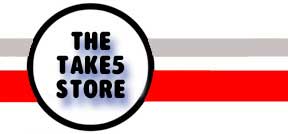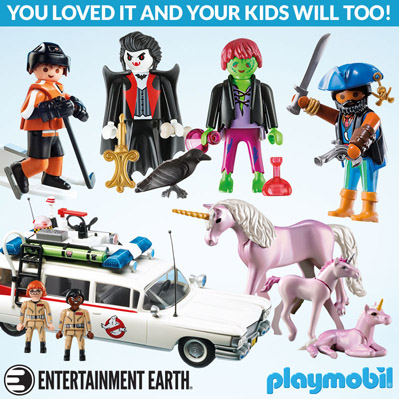Record Industry vs Apple vs Amazon vs Consumers
Once upon a time in a land before time, the music industry was living on Cloud 9. Kids and teens saw the record labels as “their” entertainment and spent accordingly. Other than some summer movies geared towards them, only the music industry understood them – every week, there were new singles at $.39 to $.59 – all up & down the dial, there was music they wanted to hear and if you got some extra spending money, there were full albums at $3.99 to $5.99. And 1979 was a nice year, you had everything from new wave to punk to metal to pop to rock and this new thing back east called rap.
The music industry had just finished a great decade where music was clearly a priority in people lives, you had multi, multi platinum albums such as Fleetwood Mac, Bill Joel, The Eagles and that kid from the Jackson 5 is all grown up sold 9 million copies of OFF THE WALL. All was good – they were probably pulling in 97% of every potential dollar – sure there were some geeks making mix tapes from albums and taping stuff off the air but they were far & few – it took effort and serious time to make a mix tape – after all, once you commit to a cassette tape, you can’t just go back and swap out song #8 on side 2 without starting all over and if you just duped it to another cassette, that’s an entire generation of hiss and lost fidelity – plus most of these guys (and it was mostly guys) were buying albums by the crate-full anyway so how much were they really losing? The only real loss was the concert tapers who made bootlegs – most sounded horrible and it was definitely underground to way, way underground.
The biggest loss was clearly shoplifting but what the labels care, the stores pay for that loss – the record labels already got paid in full (as Eric B. & Rakim might say). And speaking of being paid, most (accounting) records were kept by hand or by mumbo-jumbo mainframes so how much exactly should the artist really be getting? Hard to say – it’s in a warehouse, it’s on a truck (back then, no tracking), it’s at a plant, it’s being cut-out, the Columbia House record sales don’t count anyway (they are considered promotional), here’s what we spent on ‘promotions,’ … we gave you an advance, what more do you want? Most artists just accepted it as the price of being able to do what they wanted anyway – besides, they could tour or just crank out another album to get an advance – the record labels were mostly small potatoes and casual anyway so to the musicians didn’t get the real sense of it being part of a huge conglomerate corporation (except maybe the stuffy CBS Records … who sold the Yankees for $10 million dollars in the early 1970’s … that might be worse than that Alaska deal … yea, that Alaska).

If the record labels thought the 1970’s were good times, the 1980’s was off the hook and off the wall. The CD format which they sneered at earlier – we have a good thing going with LP’s, let’s not mess with it became their addiction and drug. Instead of selling LP’s and making a few bucks at most, suddenly, they were making $5 to $8 dollars a CD and with 25% of Amerians replacing their LP’s with CD’s on top of buying eveything new, it was the best of times. It became the worst of times when other companies saw their cash flow and margins and started scooping them up or in most cases, since they were aligned with a studio, why not just buy both – of course, after buying them for billions of dollars came the bureaucracts … why are you selling the best songs for a couple bucks when we should just entice to buy the entire CD … and why $9.99 – why not $12.99 or why not $15.99 or why not $18.98 … so while they were doubling margins, they missed out on several things – sometimes right next door. First, instead of competing against just book sellers for take home entertainment, now there were a few other choices including – movies & video games. Music just wasn’t front and center anymore – you might invite your friends over to watch a tape (or later a DVD) or play some video games but invite people* over to listen to CD, just listen to a CD?
Perhaps the ad slogan of the music industry worked too well – music – the soundtrack to your lives … now, it’s just background music.
What also ironically also contributed to the demise of music as “MUSIC” was the music video – every video really just said “music” was secondary to visuals. People would say ‘great video’ but what about the music or song that was supposed to be the reason for the video? How brilliant was ZZ Top to match their second-rate bar songs to unforgettable videos (as hokey as they are also). Or Baywatch – a 5 minute music video incorporated into each episode to save on production costs (ie: would you rather watch Pam Anderson run up & down a beach or listen to Hasselhoff talk?)
Then add in music turning up in elevators, on hold, in ads to sell inane things and later in ringtones, in TV shows and video games – what is then the value of music as a stand-alone entertaiment choice? – now something really, greatly diminished.
*(and yes, MTV used to play music videos so you could invite people over to watch videos – at one point MTV played music videos 24/7 and now, like everywhere else, the music is a soundtrack to their TV shows).
It also didn’t help that radio was being consolidated so there was a lot of less airplay.
But all and all, it was still a pretty good living. While technology had made counterfeit duping of CD’s possible and relatively inexpensive so they were losing sales to counterfeiters but that was a much bigger problem overseas and not a major concern. They will making 90% of every dollar available to them then.

The ability to convert a CD audio track to a computer track was available fairly early on but when hard drives were barely 30 MB and one song from a CD was about 30 MB, what was really the point? It would be like starting a collection of dump trucks. Of course, it also should be pointed out the music industry has never had much of a relationship with technology so even if someone had pointed it out to them, since they fear and loathe technology, they could never understand why anyone would embrace it – so as hard drive costs started falling faster and faster – and once the mp3 compression was created – it was a shift of the magnetic poles.
While the RIAA likens downloading to ‘shoplifting,’ the line is less clear partially because the line is not always clear – if you own the CD, is it okay to download the mp3 because you’re too lazy or don’t know how to convert your CD? Is okay to download an mp3 of a concert/live version if you can listen to the version free on AOL? Is it okay to download if you own the LP? (what’s the time frame of ownership?) Is it okay to download mp3’s if the artists says it’s okay? Is it okay to do it at college but the CD is at home? Some of these issues are ethical, some are legal issues – that’s not the debate here – the debate is that people are doing it. What is the response?
ATTITUDUAL CHANGE
Vinyl LP’s were fine when you gathered around the Hi-Fi to listen to music. CD’s were better for a new generation on the go – first, easier to make mix tapes and then later, car CD decks & portable CD players negated having to make a mix CD, just push shuffle and if you hate the song – just press FORWARD. While sound fidelity was a nice improvement – consumers loved the CONVENIENCE factor much more about CD’s – fast forward to any track, back up, no needles to drop or replace.
When we entered the late 1990’s, what the music industry missed out was that when people were in their car, the portable CD was just too limiting and it was still a hassle to shuttle CD’s in and out even with a CD jukebox player at home … what was more and more people spending time in front of – their COMPUTER. And they still wanted to listen to music – to have a soundtarck to their life … IF ONLY THERE WAS A WAY TO STORE TRACKS ON THEIR COMPUTER.
(yes, computers could play music directly from a CD but again, if you only wanted 1 track from a CD – you spent more time shuttling it in and out).
When the MP3 compression was unleashed … that was when the music industry should’ve responded.
Instead they ignore it – ultimately, you understand why – they’d been controlling all aspects of distribution and what was this internet thing? It would’ve required all their brainpower to understand that things were changing.
But again, it’s not as some consumers sat up bolt upright in bed one night and decided, what I’d really like to do is not pay any money and get music for free … no, what really happened was a culmination of everything in terms of how the music industry sold itself and its attitude towards music – that it was empheral, fleeting and it’s just background. Music was there to provide a soundatrck to your life AS YOU’RE DOING OTHER THINGS. Music was no longer just for gathering friends and listening … it was just part of the backdrop and it was fleeting. The marketing is always about the latest hit or what’s the newest artist … and really, music is just like a score to your daily life – unobtrusive while you’re riding an elevator, buying groceries or on hold – just pleasant time filler to take your mind off the REAL task at hand.
So, why wouldn’t consumers think clicking and downloading digital bits and bytes is a crime legally or ethically? To them, music are like napkins at a fast food restaurant … it’s here today and gone tomorrow LITERALLY. After all, how many people really even back up their files or just throw it all away when they sell their computer – not even knowing how to reformat the thing before selling or giving it away? To them, it was NOTHING and it is nothing. It’s pleasant, it’s nice but it’s dispsibale (how many people cannot find 50% of their collection at any given time?) – why not download this track, I’m pretty sure I bought the CD when I was on Thanksgiving break.
AND consumers clearly wanted to listen to “this” track … but was it really available? Not really thanks to the new corporate beancounters … it was available at $18.98 with 11 other tracks … humm, what’s my alternative? Napster is like radio – I just pick and choose the songs I want to listen to on this laptop – and as noted, when the laptop is gone, so are these tracks … CLICK.
Napster was WAY more convenient than a CD – does the store actually have it? Do or will I like the entire CD? I could order it and wait a couple days … again, for $12.99 to 20.99 (mall store prices) … or there’s Napster, free preview, and CLICK.
Just to go back to the legal and ethical issues – if I download it, listen to it and toss it – is that different than listening on the radio or borrowing my friend’s CD?
Of course, it’s always hard to compete against free but NOT impossible.
Why? Because consumers really want convenience at the right price.
Napster, p to p and torrents are great when you have NO OTHER alternatives.
That’s what confused the music industry because they offered alternatives to Napster BUT:
a) They didn’t really want them to succeed to cut into the more profitable CD sales;
b) They choose a format that was designed to be a DRM vessel first and a music format second (hello MS WMA – which could not FF correctly).
c) They were lawyered upped and greedied up (one store’s song expired after a MONTH!)
d) The ‘storefronts’ were NOT designed to actually succeed but just to say – we tried …
Their conclusion that everyone is a thief is easier to live with than admit their own truths.
Instead of selling consumer tracks in an easy to find, search and navigate store front, they built a storefront with poor roads leading to it, no parking, and sales clerks who followed you around to show you one item at a time under glass … in other words, this would be a great business without you thieving and annoying customers.
Now, it didn’t help that the mp3 players out were bricks or just the equivilient of a brick to the head. There were mp3 players that couldn’t load songs with the exact same title (what do you mean, there’s ‘another’ version of the same song?) or had batteries that would fall out or the “hold’ button was 3 submenus away.
THE IPOD ERA
Lo and behold, Apple proved you could sell against FREE. Why?
Well, Napster or Limewire or any other p to p was no guarantee – you could click on it and it would vanish or you would get a wrong song or it might start a countdown that read 27 hours, 34 minutes …
Of course, illegal or “free” has its fans – either people on a budget, people who are thieves, people who think they are getting away with something but like napkins at a fast food restaurant, most people are only going to take what they think they need … most people have BETTER THINGS TO DO WITH THEIR TIME.
The RIAA likes to think that 100% of music fans out there are thieves but that’s simply untrue. It’s like the “street value” of a drug seizure. Nobody wants to know that it’s maybe $4k worth of pot – the cops want you to believe they have pulled $1 million dollars street value of pot off the streets. Sure, when they intercept an entire bushel, that might be a $1 million but 2 Ziploc bags?
There will always be napkin fantatics or napkin thieves depending on your POV but they are not the majority.
80% of people just want convenience at the right price and that’s why Apple was able to sell 3 billion tracks. Because FINALLY, someone delivered a store that was nice to look at, easy to search, easy to buy & load and just easy. With a few minutes to 5 (if you’re buying a video) and with ONE CLICK, I have previewed, purchased and it syncs and loads onto my portable player.
Sure, it has DRM – would I prefer that it didn’t? Of course but it’s pretty invisible since it loads on as many ipods as I have and up to 5 computers (should cover most people) and now wiith AppleTV, it will even send it seemlessly to my TV.
Does the record industry recognize this for what it is? Of course not. To them, we consumers sat down and decided we prefer Fairplay DRM over all others and we insist on it by name.
Well, I know I didn’t – how about you? Did you gather up the family and neighbors and poll them on which DRM you prefer? Fairplay or WMA? Or did you decide, hey, this ipod works best and there’s a store – nice.
That’s it – that’s about as much time as most people spent on the matter.
But to the music industry, it’s like Apple took their thing and wrapped it and is re-selling it – how dare they? They seem indigant as if Apple wasn’t paying them $.70 of every dollar … oh wait, Apple is – which means out of the 3 billion tracks sold, they have made about $2.1 BILLION dollars from iTunes (given or take a couple hundred million). Hey, but what’s $2.1 billion nowadays, you could pick that up almost anywhere.
They look at the iPod & iTunes and think, it’s so simple, it’s just a stupid mp3 player and a jukebox software with a store thing – why can’t anyone else make it super successful?
Well, now comes the big test. Pitting WMA PLAYS4SURE and WMA Zune against iPod/iTunes was not much of a fight so now this Amazon fight will make for an interesting test.
Amazon has smartly designed it so it can almost replicate the iTunes store but is it close enough? I just bought an album and it seems to work fairly easily – but now comes the big test.
Is DRM free enough to sway tens of millions to switch permanently?
While on the surface, everyone would choose DRM free but the question is – we know 3 billion tracks have been sold – to several hundred million people – who did not think DRM laden tracks was enough of a “hinderance” not to buy tracks from iTunes so what’s different now?
Ultimately, does Apple really care? What are you going to do with Amazon’s DRM free tracks?
Um, buy more iPods? (Amazon’s main mp3 graphic leads off with an iPod).
At one point (2 years ago, I think), the stat was that the average iPod had 22 tracks from the iTunes store – even a doubling to 50 is fairly small considering that even the shuffle holds 200+ tracks and that the nano will hold a couple thousand so clearly, people knew how to get tracks onto an iPod whether converted from a CD or by hook & crook as the RIAA & its members like to call iPod users so CLEARLY the iTunes store while a contributor to iPod sales was not the main or only reason people bought iPods. Or to look at it from another point of view, clearly consumers who bought an iPod realized they were not “locked” into the iTunes store to get music onto their player – that is CRUCIAL.
So how will Amazon DRM free tracks sell in comparison to CD’s (which are 99% DRM free)? In other words, if iPods on average contained 60 to 95% DRM free mp3’s previously without the Amazon DRM free store as a choice, what’s really different now? If anything, since the record industry lowered the price of albums and singles to compete aginst iTunes, we can draw these conclusions:
IN SUMMARY
The record industry spent hundreds of millions telling us music was just background to everything else in our lives. Now, they’re mad we believe them and treat their products accordingly.
They made millions selling the same tracks or the underlying music to elevator operators, phone companies and in TV ads – and again, mad that we treat their products as ‘diminished.’
We’d rather not sell you a million CD singles at $2.99 but we’d rather sell you a full CD’s at $18.98. Consumers: Oooaakkky … we’ll find a way around that …
We’ll spend millions on download stores designed to discourage you from buying legal online tracks.
We’ll spent millions and millions on lawyers to sue you even though we don’t truly really know if you violated any laws.
We’ll spend milions on CD DRM that can be defeated by a marker, or by additional software.
We’ll spend millions to add a rootkit and spend another $100 million settling the case.
We’ll try to drive the iTunes store out of business even though they’ve basically gave us $2.1 billion out of thin air – by letting Amazon sell albums and singles cheaper and without DRM – thus giving up revenue and sales from iTunes, retail CD sales and even the mobile market as people can now buy DRM Mp3’s to load instead of paying Sprint $2.50 a track. Same pattern? Identify an “enemy?” Spend hundreds of million attacking this “enemy” which is oddly usually someone giving them money like Apple or consumers …
They seem to believe us foolish consumers think we are “locked” into the iTunes store when clearly by the number of tracks sold per iPod, that is obviously NOT the case … why are they so confused?
END RESULT?
Amazon’s store will do fine as long as the DRM free and pricing holds … but ultimately, it will just result in more iPod sales as current iPod owners will switch some sales to Amazon but will need to buy a bigger iPod … and the few who loathed the iTunes store can now jump in.
End result – more iPods with more DRM free tracks.
And/or more iPod users who eventually just go back to iTunes because it’s just ever so slightly easier (plus there’s no: music videos, TV shows, movies, podcasts, etc … at Amazon).
DRM is not the way to knock off the iPod-iTunes on Mt. Cupertino Olympus.
It’s all very simple. Let me summarize my free $3 million consulting analysis.
It’s easy to take down the iPod-iTunes alliance.
All that needs to be done is to create a DAP that is better looking and better than the iPod at a much cheaper price … oh, and with a better user interface and that can preview, purchase, load, sync and playback with ONE CLICK – music, audiobooks, podcasts, movies, tv shows, trailers, music videos, games, photos and a calendar. You also need some marketing and while you’re at it – you should start thinking about a touchscreen phone.
On paper, it’s easy. But in the real world?
So, good luck to you in taking on the iPod, iTunes, the iPhone & Steve Jobs.






